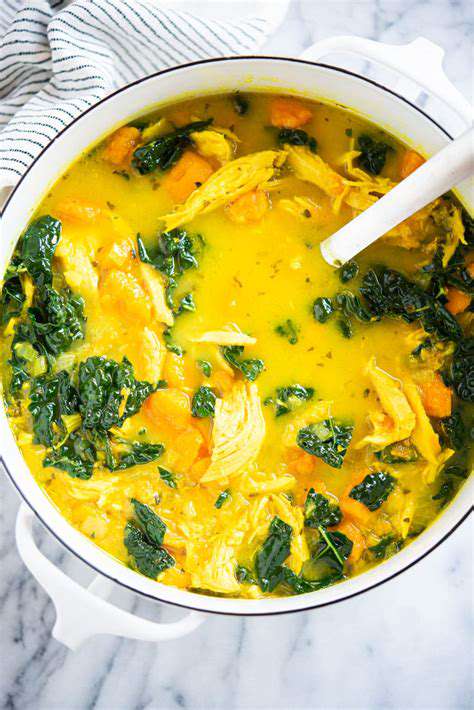Boosting Your Immune System with Food: Wellness Recipes
While nutrition is crucial, lifestyle factors also heavily influence immune system function. Sufficient sleep, regular exercise, and stress management all contribute to a healthy immune response. Chronic stress can suppress the immune system, making you more vulnerable to illnesses. Prioritizing sleep and incorporating regular physical activity can significantly improve your immune system's effectiveness.
Foods to Boost Immunity: Specific Examples
Certain foods are particularly beneficial for boosting immunity. Citrus fruits are excellent sources of vitamin C. Leafy green vegetables provide a range of vitamins and minerals. Fatty fish, like salmon, are rich in omega-3 fatty acids, which contribute to overall health, including immune function. Include these immune-boosting foods in your diet to support your body's natural defenses and maintain optimal health.
Powerhouse Foods for a Healthy Immune System

Boosting Your Immune System with Protein Powerhouses
Protein is essential for building and repairing tissues, including those in your immune system. Consuming adequate amounts of high-quality protein helps your body produce antibodies and other immune cells that fight off infections. Lean meats, poultry, fish, eggs, and dairy products are excellent sources. Choosing protein sources that are low in saturated and unhealthy fats is crucial for overall health.
Including a variety of protein-rich foods in your diet can contribute significantly to a robust immune response. Plant-based proteins, like lentils, beans, and nuts, also play a vital role, offering a range of nutrients and fiber that support your immune system's function.
The Importance of Micronutrients
Vitamins and minerals are crucial for various bodily functions, including immune system function. Vitamins C, D, and zinc are particularly important for supporting immune cells and their activities. These nutrients play a vital role in the production of antibodies and the overall health and function of immune cells.
Getting sufficient amounts of these essential micronutrients through a balanced diet is vital. Fruits and vegetables are excellent sources of vitamins and minerals, providing a wide array of nutrients that contribute to a strong immune system.
The Role of Healthy Fats
Healthy fats are essential for cell function and overall health, including the health of your immune cells. Monounsaturated and polyunsaturated fats, found in avocados, nuts, seeds, and fatty fish, are particularly beneficial. These fats contribute to the structure and function of cell membranes, which are crucial for immune cell communication and activity.
Incorporating these healthy fats into your diet can support the overall function of your immune system. They also provide energy and contribute to healthy skin and hair, which are often overlooked but contribute to a healthy immune system.
Fiber for Gut Health
A healthy gut microbiome is a cornerstone of a strong immune system. A diet rich in fiber, found in fruits, vegetables, and whole grains, promotes a balanced gut microbiome. Fiber acts as food for beneficial bacteria in your gut, fostering a healthy environment that supports immune function.
This healthy gut environment is crucial for immune function. A balanced gut microbiome can reduce inflammation and support the production of immune cells, contributing to a robust immune response.
Hydration for Optimal Immune Function
Water is essential for virtually every bodily function, including immune system function. Staying hydrated helps your body transport nutrients to your cells, including immune cells, and flush out toxins. Dehydration can negatively impact immune function, making you more susceptible to illness.
Maintaining adequate hydration throughout the day is crucial for a healthy immune system. Carry a water bottle and sip on water throughout the day. Consider adding fresh fruit or herbs to your water to enhance flavor and encourage hydration.
The Power of Antioxidant-Rich Foods
Antioxidants, found in many fruits and vegetables, protect your cells from damage caused by free radicals. Free radicals can negatively impact immune function, so consuming antioxidant-rich foods can contribute to a robust immune system. Berries, leafy greens, and colorful vegetables are excellent sources of antioxidants.
Antioxidants play a key role in neutralizing harmful free radicals. A diet rich in antioxidants can protect your immune system and overall health. Incorporate a variety of colorful fruits and vegetables into your daily meals for a potent antioxidant boost.

Recipe 2: Spicy Turmeric & Ginger Soup

Ingredients
This recipe relies on a vibrant blend of spices to create a flavorful and aromatic dish. The key ingredients are turmeric and ginger, providing a warm, earthy base, complemented by a touch of heat. You'll also need a variety of vegetables to add texture and nutrients. Fresh vegetables like bell peppers, onions, and broccoli will enhance the overall taste experience, while providing essential vitamins and minerals. Don't forget the protein! Chicken or tofu are excellent choices to ensure a complete and satisfying meal.
To achieve the perfect balance of flavors, precise measurements are crucial. A dash of red pepper flakes or a pinch of cayenne pepper will add that fiery kick. Be sure to adjust the amount to your preferred level of spiciness. The recipe also calls for coconut milk, which adds a creamy richness and a hint of sweetness to balance the spices. Using fresh herbs like cilantro or parsley will add a vibrant touch to the dish, enhancing the overall flavor profile.
Instructions
The preparation process is relatively straightforward. First, you need to finely chop the vegetables, ensuring even distribution in the cooking process. This step is essential for uniform cooking and optimal flavor absorption. Once chopped, sauté the vegetables in a hot pan with a little oil until tender-crisp. Then, add the protein – chicken or tofu – and cook until fully cooked. Finally, stir in the turmeric, ginger, and other spices, and allow them to simmer for a few minutes to develop the depth of flavor. This step is crucial for releasing the aromatic compounds from the spices.
The addition of coconut milk significantly enhances the richness and creaminess of the dish. Allow the mixture to simmer for a few minutes, allowing the flavors to meld together. Once the dish is heated through and the flavors have integrated, it's ready to serve. Garnish with fresh herbs for an extra touch of visual appeal. Serving suggestions include basmati rice, naan bread, or quinoa for a complete and balanced meal.
Serving Suggestions
This spicy turmeric and ginger recipe pairs well with a variety of accompaniments, offering a complete and satisfying meal. Basmati rice is a classic choice, providing a fluffy texture that complements the savory flavors of the curry. Naan bread, with its soft and slightly tangy flavor, soaks up the delicious curry sauce, making it a perfect side dish. Quinoa, a healthy and versatile grain, is another excellent option, offering a complete protein source and a nutty flavor that enhances the overall culinary experience. These options offer a diverse range of flavors and textures, ensuring a complete and satisfying meal.